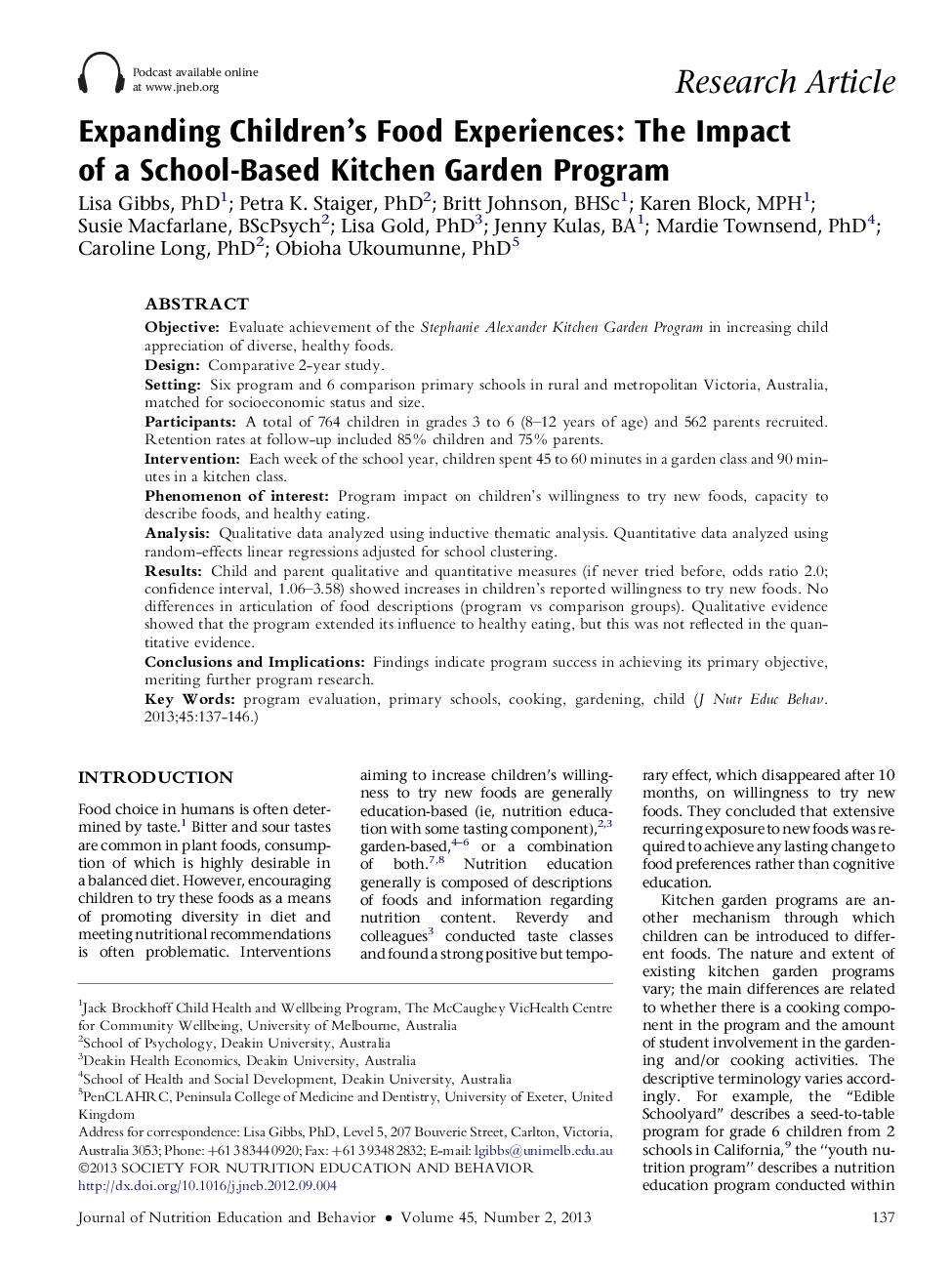| Article ID | Journal | Published Year | Pages | File Type |
|---|---|---|---|---|
| 361912 | Journal of Nutrition Education and Behavior | 2013 | 10 Pages |
ObjectiveEvaluate achievement of the Stephanie Alexander Kitchen Garden Program in increasing child appreciation of diverse, healthy foods.DesignComparative 2-year study.SettingSix program and 6 comparison primary schools in rural and metropolitan Victoria, Australia, matched for socioeconomic status and size.ParticipantsA total of 764 children in grades 3 to 6 (8–12 years of age) and 562 parents recruited. Retention rates at follow-up included 85% children and 75% parents.InterventionEach week of the school year, children spent 45 to 60 minutes in a garden class and 90 minutes in a kitchen class.Phenomenon of interestProgram impact on children’s willingness to try new foods, capacity to describe foods, and healthy eating.AnalysisQualitative data analyzed using inductive thematic analysis. Quantitative data analyzed using random-effects linear regressions adjusted for school clustering.ResultsChild and parent qualitative and quantitative measures (if never tried before, odds ratio 2.0; confidence interval, 1.06–3.58) showed increases in children’s reported willingness to try new foods. No differences in articulation of food descriptions (program vs comparison groups). Qualitative evidence showed that the program extended its influence to healthy eating, but this was not reflected in the quantitative evidence.Conclusions and ImplicationsFindings indicate program success in achieving its primary objective, meriting further program research.
